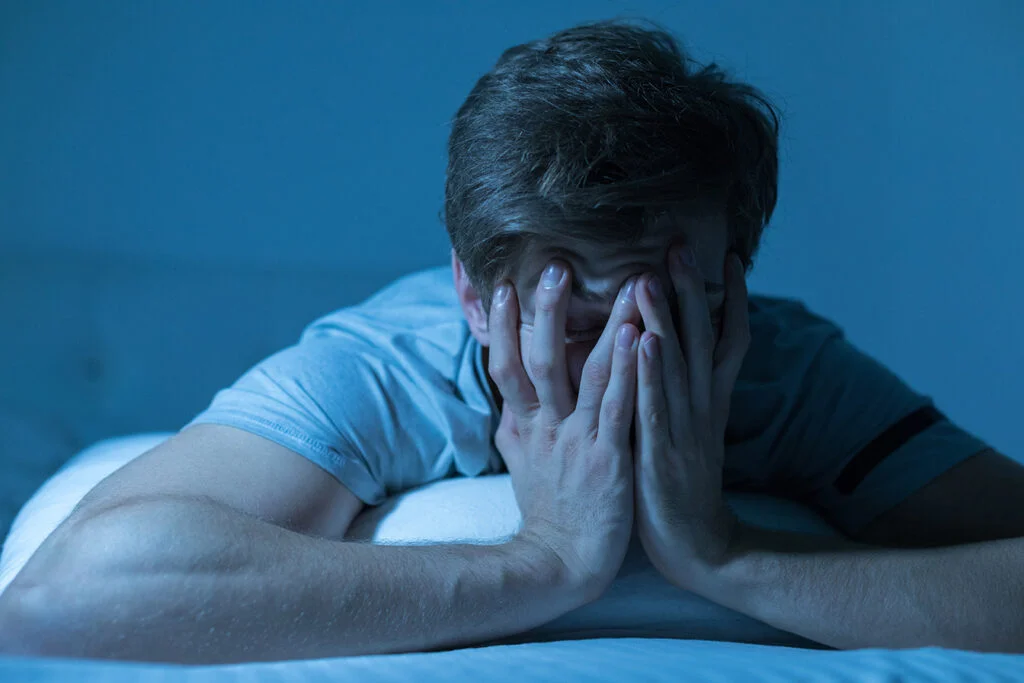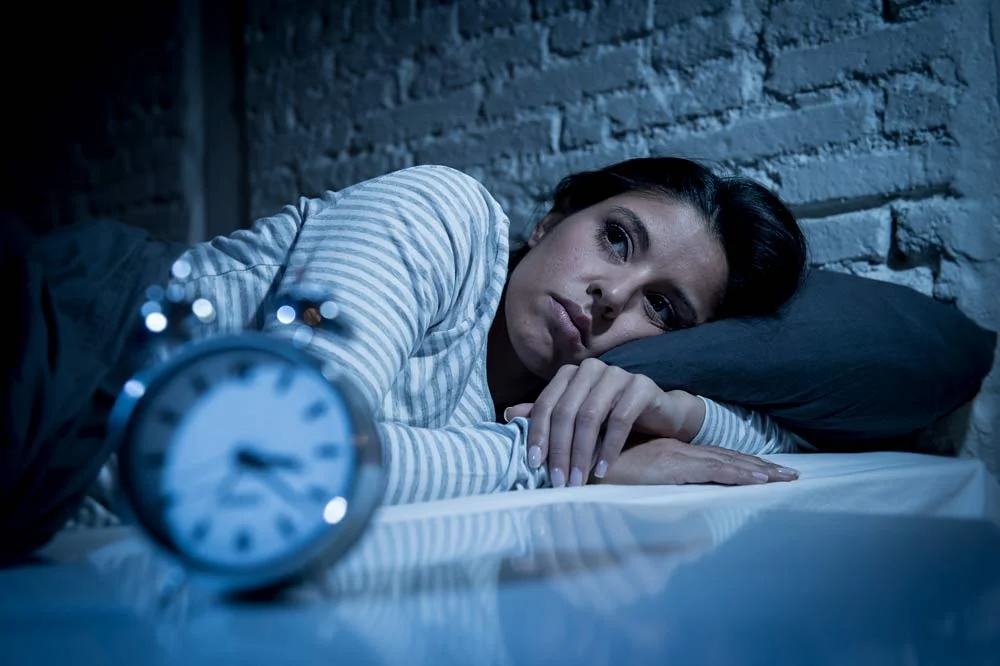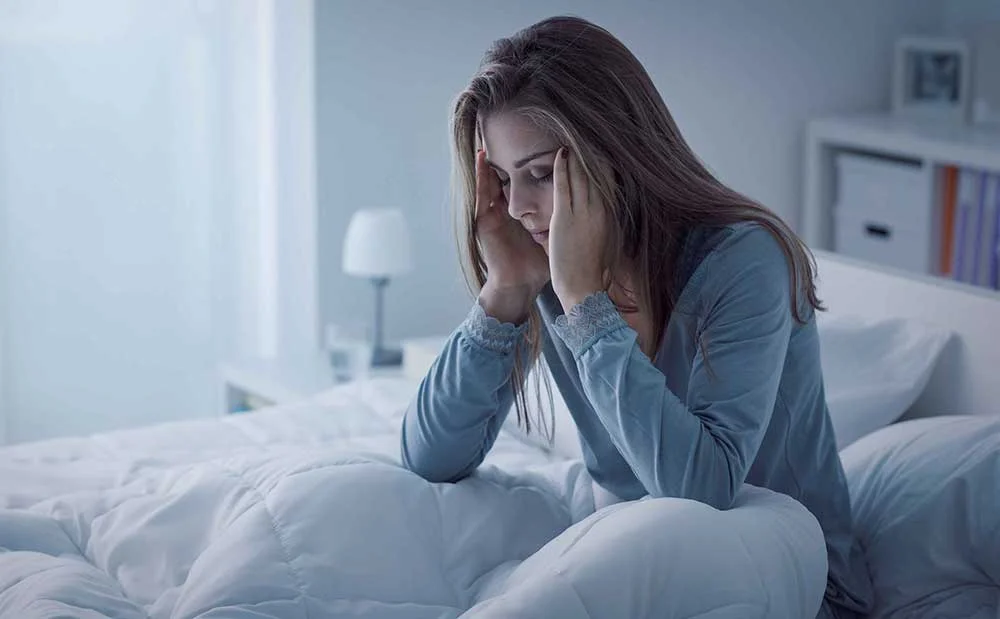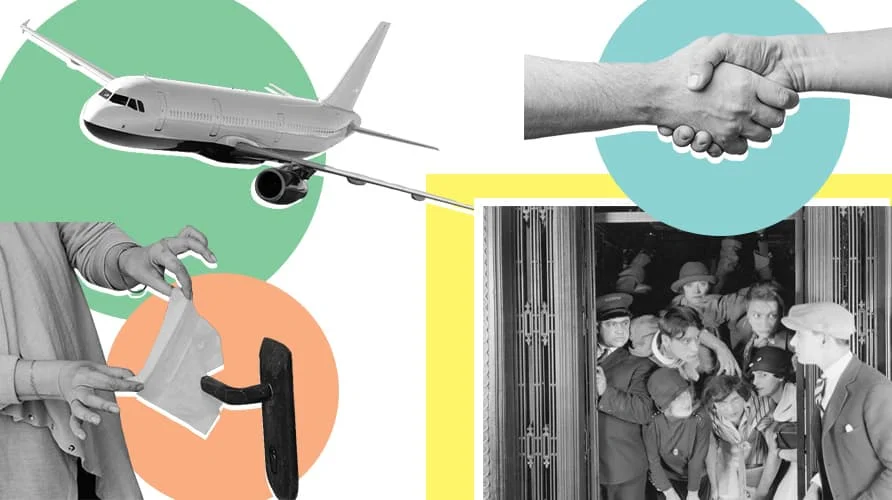
Anyone who’s woken up from a poor night’s sleep knows how missing your Zs can make you more testy and quicker to react negatively to situations you’d typically handle with ease. And there’s been no shortage of research emerging underscoring the link between mood and sleep. A recent American Psychological Association (APA) analysis encompassing 50 years of such research highlights how inadequate or disrupted sleep impacts mood and mental health (1).
Sleep loss due to complete deprivation, partial loss of sleep, and fragmentation (broken up sleep) all diminish positive mood and raise anxiety levels, according to the meta-analysis, which used data from over 5,000 individuals across 154 studies. The analysis revealed that even shorter periods of sleep loss impact emotional responses. In short, the data shows that getting a minimum of seven hours of quality sleep each night for adults is critical not only for general mental health but also for preventing obesity, heart disease, dementia, and mood disorders.
With approximately 53 percent of Americans, 39 percent of UK adults, 30 percent of Canadians, and 29 percent of Mexicans sleeping less than the study-recommended minimum of seven hours per night, emphasizing healthy sleep habits is paramount for enhancing mental health.
Sleep Loss and The Brain
The APA study reveals some fascinating insights into the neural complexities of sleep loss. Dr. Ruchir P. Patel, M.D., FACP, Medical Director and Founder of The Insomnia and Sleep Institute of Arizona, LLC, explains that when you miss out on much-needed sleep, key brain regions like the amygdala, central to processing emotions, become more reactive.
A more reactive amygdala impedes top-down emotional regulation in a part of the brain involved in top-down emotional regulation — the medial prefrontal cortex (PFC). Your PFC is crucial for self-regulation — the skill that helps guide your thoughts, feelings, and behaviors.
This increased amygdala reactivity due to lack of sleep amps up the fight or flight response in the brainstem, leading to negative emotional response processing and reducing connection with the PFC. So what does that mean? Your ability to regulate emotion is significantly restricted.
Dr. Hayley Nelson, a neuroscientist, psychology professor, and founder of The Academy of Cognitive and Behavioral Neuroscience, explains that this miscommunication between brain areas increases negative emotional responses. Patel also says this effect increases anxiety and reduces the ability to react positively to good experiences.
The study particularly links rapid eye movement (REM) sleep stage loss to more pronounced negative emotional reactions. According to Nelson, this is due to an impact on neural circuits that govern reward, emotion, and cognitive control, each of which plays a pivotal role in shaping emotional responses.
Nelson points out these results align with what neuroscientists know about the crucial role of REM sleep in emotional regulation and mood stabilization. “Disruptions in REM sleep can lead to increased negative emotional reactions and affect mental well-being, potentially due to impaired processing and consolidation of emotional experiences,” she says.
To put it simply — losing sleep, especially REM, means your brain becomes more “glass half-empty” than “glass half-full” and increases anxious thoughts and feelings.
Mental Health Treatments and Interventions Can Help
When researchers examine data and publish analysis as the APA has done, the ultimate goal is to determine how to best change societal and medical practices to solve the problems at hand. Combining mental health treatments and workplace and lifestyle-based solutions can improve outcomes for those affected by sleep loss.
Mental Health Treatment Considerations
Understanding the significance of sleep in regulating emotions is the first step in effectively treating mental health. Lack of sleep, disturbance, and lack of REM sleep can substantially impact emotional reactivity. This is particularly relevant when treating individuals with depression, anxiety, and PTSD, according to Patel.
- Depression: Individuals with depression who are sleep-deprived tend to focus more on negative emotions and may struggle to recognize or respond to positive experiences.
- Anxiety: Those with anxiety disorders can become more anxious due to decreased REM sleep, which leads to increased noradrenaline release during sleep. This can result in heightened irritability, anger, and overreaction.
- PTSD: The lack of REM sleep can perpetuate negative emotions linked to trauma, making nightmares more prevalent. This, in turn, can lead to further sleep disruption and increased anxiety.
Patel stresses that screening for sleep issues in individuals with mental health conditions is as crucial as pinpointing the right medication. Notably, many antidepressants suppress REM sleep, which can be counterproductive in treating mood disorders, says Patel. Make sure to discuss your options and concerns with your healthcare provider.
Enhancing Mental Health Interventions
Therapies that focus on improving sleep quality, such as Cognitive Behavioral Therapy for Insomnia (CBT-I), are invaluable in treating mood disorders, according to Nelson. A 2022 review published in Sleep Medicine Interventions found that CBT-I proves highly effective in treating individuals who have insomnia alongside another mental health condition, particularly depression, PTSD, and alcohol dependency (2).
Considering the numerous side effects associated with medications, the researchers suggest CBT-I as a “first-line” treatment option. What’s more, Nelson says that “by addressing sleep disturbances, these therapies can enhance the effectiveness of other mental health interventions.”
Societal Strategies for Better Sleep
Previous research proves that addressing sleep issues can benefit both individual mental health and overall societal wellness and productivity. Patel and Nelson recommend the following strategies for improving sleep quality and mental health.
- Consistent Sleep Schedule: Maintaining a regular sleep pattern is essential for good sleep hygiene. Patel recommends a consistent sleep-wake schedule for 7-8 hours per night.
- Good Sleep Practices: Encouraging practices that promote healthy sleep, such as creating a comfortable sleep environment and avoiding stimulants before bedtime.
- Mindfulness and Relaxation: Techniques such as breathwork, meditation, and journaling can help mitigate the impact of sleep loss.
- Avoiding Substances: Avoid substances that negatively affect sleep quality, such as nicotine, THC, alcohol, and high-carbohydrate or sugary meals before bedtime.
- Get Evaluated: Consider being evaluated for sleep disorders like chronic insomnia or sleep apnea, which can severely impact deep sleep and REM sleep and have been linked to mental health disorders such as depression.
- Professional Interventions: For chronic sleep issues, interventions like CBT-I or medication under medical supervision can be effective.

Types of Insomnia — Causes and Treatments

Manage Stress for Better Sleep

10 Sleep Trends for 2024: Separating Fads from Science

How Does Anxiety Affect Your Sleep?
Sources
1. Cara A. Palmer, Joanne L. Bower, Kit W. Cho, Michelle A. Clementi, Simon Lau, Benjamin Oosterhoff, and Candice A. Alfano. “Sleep Loss and Emotion: A Systematic Review and Meta-Analysis of Over 50 Years of Experimental Research,” American Psychological Association; https://www.apa.org/pubs/journals/releases/bul-bul0000410.pdf; December 30, 2023.
2. Elisabeth Hertenstein, Ersilia Trinca, Marina Wunderlin, Carlotta L. Schneider, Marc A. Züst, Kristoffer D. Fehér, Tanja Su, Annemieke v. Straten, Thomas Berger, Chiara Baglioni, Anna Johann, Kai Spiegelhalder, Dieter Riemann, Bernd Feige, Christoph Nissen, “Cognitive behavioral therapy for insomnia in patients with mental disorders and comorbid insomnia: A systematic review and meta-analysis,” Sleep Medicine Reviews, Volume 62, 2022, 101597, ISSN 1087-0792; https://doi.org/10.1016/j.smrv.2022.101597.
Nelson, Hayley. Author interview. January 2024.


























